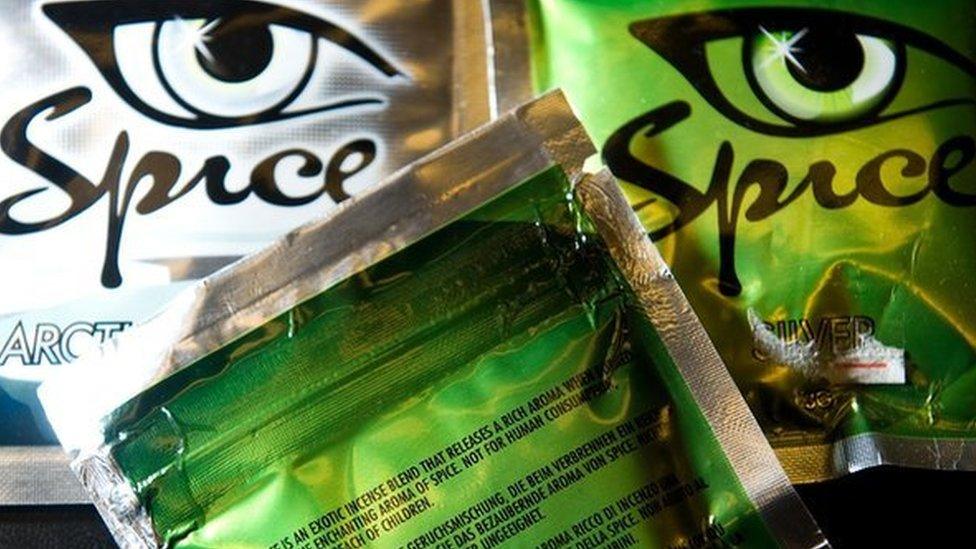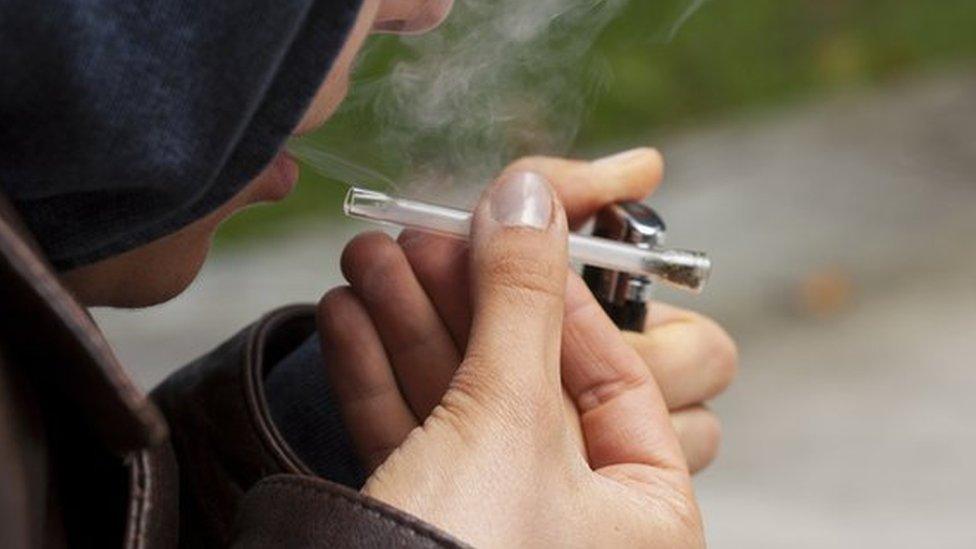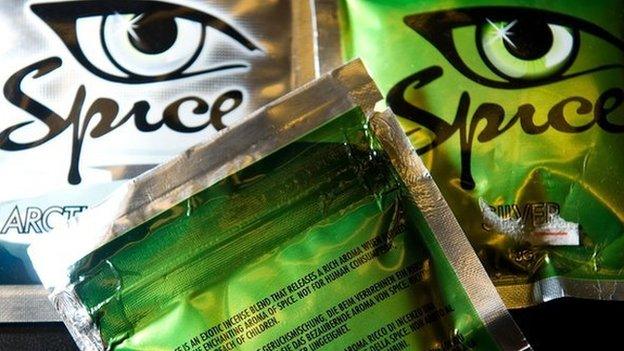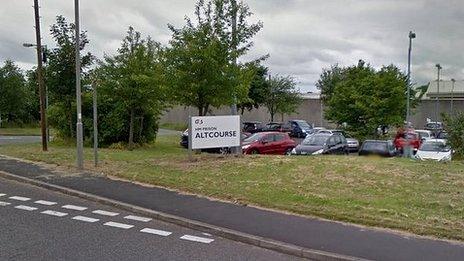Legal highs: Call to investigate link to prison deaths
- Published

Many prisoners are using types of synthetic cannabis such as Spice, according to prison staff
The Prison Officers' Association (POA) has written to the chief coroner for England and Wales asking him to investigate the link between prisoner deaths and so-called legal highs.
In a letter shown exclusively to the BBC, the union said the drugs have led to a "stark increase" in deaths.
It also linked them to violence and prison officer assaults and also called for improved drug tests.
The Prison Service said it took a zero tolerance approach to drugs in prisons.
A report by the Prisons and Probation Ombudsman (PPO), published in July, found legal highs were a factor in at least 19 prisoner deaths nationwide between 2012 and 2014.
'More than heroin'
The most popular legal highs used in prisons are Spice and Black Mamba. Spice is believed to be about 100 times more powerful than regular cannabis.
They can cause seizures, psychosis and attempted suicides and cannot currently be detected in routine drug testing.
Mark Fairhurst, an officer at HMP Liverpool, said staff believed at least one recent death in Liverpool Prison was due to Spice.
"We just don't know how prisoners are going to react when they take it," he said.
"It's so unpredictable. Some prisoners are extremely violent... some prisoners become unconscious with breathing difficulties, some seriously self-harm."
Legal highs, Mr Fairhurst revealed, can sell inside for more than heroin.
'Jump off the stairs'
A report by the PPO into the death of Liam Frodsham, external, 24, an inmate at HMP Altcourse in Liverpool, revealed he smoked Spice only hours before he died in August 2014.
It said there was evidence Spice was "prevalent in the prison".
Michael Goldsmith, who was released from Altcourse prison in July, said the "situation was out of control".
"Prisoners were taking them on a daily basis. They were getting them in on visits, over the walls. One guy was literally flying round the wing saying 'I can fly' and he tried to jump off the stairs.
"I remember one situation where this guy was so out of it he had nine staff pinning him down."
Mr Goldsmith warned: "If someone's gone out and been released, they're then getting recalled on purpose to bring a package in to then sell it on the wing.
"They're getting paid £500 or £600 to bring a parcel in of Black Mamba or Spice, then selling it on the wing as well and making a fortune."
Zero tolerance
At Altcourse, staff have used a cherry picker crane to remove packages including legal highs thrown over prison walls.

Legal highs can be smoked, snorted or swallowed
G4S Director for HMP Altcourse, Dave Thompson, said: "Like all prisons across the country, our team faces the constant challenge posed by new psychoactive substances and its impact on violent behaviour."
He said they had strengthened intelligence-sharing with Merseyside Police and re-doubled efforts to intercept drugs.
"Our record in recent months shows that the action we've taken has reduced violence and improved safety," he added.
A spokesperson for the Prison Service said: "We take a zero tolerance approach to illicit material in prisons, and work closely with the police and CPS to ensure all those caught are prosecuted and face extra time behind bars."
He added that it was already a criminal offence to throw drugs and other items over prison walls and new legislation would further strengthen those powers.
In the letter to the chief coroner, the POA expressed concern that coroners held prisoner inquests without a jury, and sometimes without witnesses, leading to verdicts of natural causes when the deaths may be attributable to legal highs.
Glyn Travis, from the POA, said: "This is the first time in the last 30 years in the history of the POA that we've resorted to this level of direct influence with an organisation such as the chief coroner.
"We believe he needs to now start to instruct all coroners, all pathologists... that they look at whether prisoners have been under the influence of legal highs, whether that is an underlying factor, because we strongly believe that that is the position."
- Published7 July 2015

- Published27 April 2015
